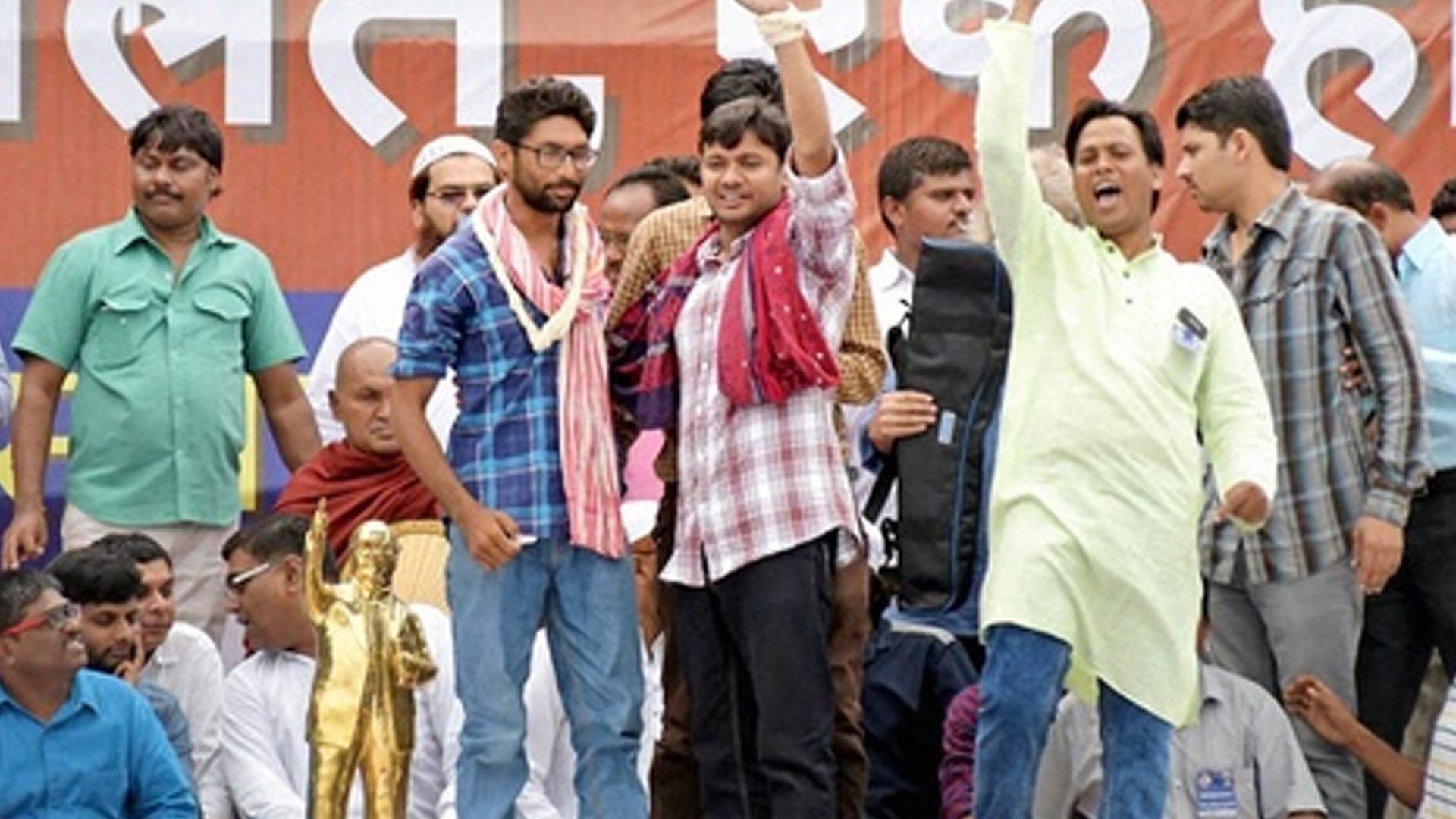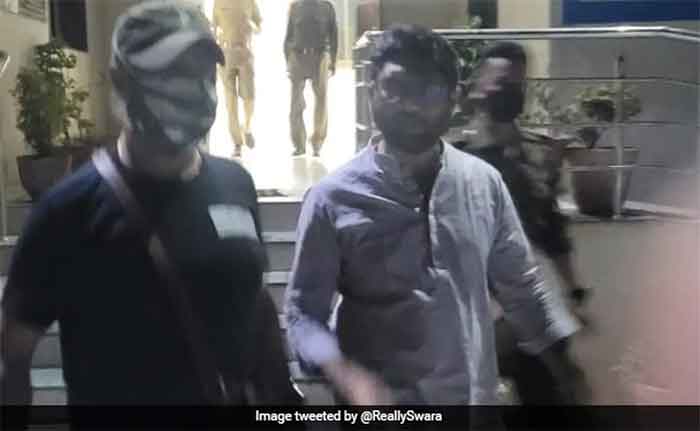
Any claim of justice is incomplete, unless it doesn’t reconcile the dimension of recognition and redistribution. Dalit and left politics need to grasp this broader zone of injustice which is constitutive of both cultural misrecognition and economic exploitation.
2014 general election was an important juncture in the life of Indian democracy for the following reasons- no one had imagined that India will once again enter into the frame of single-party dominance, the enormous and huge participation of the youth of this country who for the first time were participating in the democratic processes. BJP’s win was indeed considered as a kind of movement against corruption and dynasty rule.
But after nearly four years of this government when we look at the opportunities created by this regime in important sectors like education, manufacturing, health etc, it resembles a deep sense of despair and demotivation among youths. This is because “demographic dividend” was the basic unit of rhetoric during Lok Sabha election, 2014 on which every other tall claims were situated. Vacancies in railways, staff selection commission, various academic posts in universities lies in defunct state. The creation of jobs and the other concern of distributive justice is not only the specific problem of this country but also the entire world which is connected to the archaic structure of neoliberal capitalism. The structural problem accrues to the fact that there is no part of the world which is at the present moment able to resist the urge of capital. It (capital) does have emancipatory and universal capacity but until and unless the character of capital will not be social its drive to accumulate profit will further entrench inequality. Hence, the role of the state in developing country like India becomes important for any transformative change by democratizing and socializing the potential of capital.
It is in this context that the rise of right-wing government across the world is also a part of a larger pattern. The pattern is – more there will be the crisis within capitalism more it will cause frustration among the people as the promises of it will not match the expectations that it has generated among the masses over the time. It is in this way the right wing demagogues across the world be it Donald Trump or Narendra Modi rose to power by shrewdly connecting the dots of frustration and anxiety of the citizens without giving them any substantial meaning. It is indeed a predicament that the left discourse which does have radical potential in it for the transformative change hardly able to form an alternative in the present context.
The demise of parliamentary left to a large extent becomes palpable after it lost its most populated bastion of West Bengal during 2011 and also it unable to create that lost enthusiasm during 2016 West Bengal assembly election. With the centrist on the back foot and left becoming invisible, should we consider BJP as an invincible force in the contemporary era? Though the simplistic reading of the current scenario may be depicting the upsurge of right as a triumphant force but the nuanced reading of the situation will lead us to conclude that the transformative change is happening somewhere else! Yes, it is after a long time in independent India the concern of justice is seen to be constitutive of both ‘politics of recognition’ and ‘politics of redistribution’ in the sphere which is not generally the sphere of popular politics. That particular sphere is the youth politics and activism. Whether it is left politics represented by the youths like kanaiyah Kumar, Umar Khalid, Shehla Rashid or the Dalit politics whose main faces are Jignesh Mewani, Chandrasekhar AzadRavan. The departure from the conventional left-Dalit politics is pertaining to the way these youth leaders are articulating the politics of recognition and redistribution which together constitute the substantive aspect of justice.
Just like left politics in this country, in history had remained more toward the side of redistribution due to which it missed the dimension of recognition which nonetheless is an important aspect of justice. Similarly, Dalit politics except during the lifespan of Ambedkar and during the brief spell of Dalit Panthers completely missed the dimension of redistribution (BSP/SP politics in UP and the RJD in Bihar is the case in point). One could argue that the identity politics in these regions has further entrenched the question of caste in such a manner that the aspect of redistribution is nowhere in the scene.
The inception of the transformative change that I mentioned and the coherent idea of justice was first seen to be articulated though rhetorically by using the metaphor of Lal katora and Neela katora (red bowl and blue bowl) by the student leader Kanaiyah Kumar, in his speech which he delivered after he was released from custody. The symbolic usage of these phrases by Kanaiyah was in no way in total vacuum but the prudent understanding of juxtaposing politics of recognition and redistribution, which Nancy Fraser argues are the ‘bivalent conception of justice’. Fraser’s framework of justice gives us an apt understanding of framing the concern of Indian politics which in a way directly targets the exploitative structure of caste as well as capital. Left’s ignorance toward caste can be seen to be corrected when its young leaders are ready to rectify their mistake by taking into account the forces of identity. Similarly, the Una movement was one of the major turning points in the life of the Dalit politics as it is after a long time we can see the question of redistribution was prioritize by any Dalit leader. The movement like Una gave the Dalit leaders like Jignesh Mewani and others to prioritize the ‘land question’ which is subdued for a long time in Dalit politics. At another end, leaders like Chandrasekhar Ravan seemed to get hold of tackling the right-wing forces through educating the poor and marginalized children which nonetheless in the course of time will be an effective strategy to counter RSS’s school programmes. The rift that has been caused within the left and Dalit politics is needed to be bridged both at the level of discourse and practice in order to challenge the upsurge of right-wing forces. It is in this context these youth leaders are the signposts which can be an emphatic challenge to the Modi government in the coming 2019 general election.
The optimism that I am trying to indicate hasn’t at all taken a coherent picture but is present in fragments which needs to be connected not for the analytic purpose but for effecting the active politics. One could argue that it is the coming together of both recognition and redistributive politics in the form of Mewani in Gujrat which could pose challenge to BJP during 2017 assembly election. However, the challenge is manifold, there is no sign among the oppositions of charting out any kind of concrete strategy in the upcoming general election. Rahul Gandhi is yet to prove his viability in politics and much depend in the way he would be able to foster the lost spark among the Congress cadres. Till he does so, transformative change can be expected from the above-mentioned youth leaders and their ability to reconcile the demand of recognition as well as redistribution. One point should be amply clear that if the youth of this country played an important role in bringing this government in power then it should be the same force which should take at least initiative in framing the question of justice in a right manner.
It is in this context the zone of transformative politics must make a greater mobilisational impact in the larger socio-political processes. Kanaiyah Kumar and Jignesh Mewani become important in this project as both of them are self-critical about the brand of politics, they belongs to. It is also the dimension of self-reflection and self-criticism which makes the left and Dalit politics a partner in the age of Hindutva, reflection of which is also present in these young leaders. Both these leaders carries with them a tremendous zeal to bridge the unholy divide that has happened within the left- Dalit politics in the course of history. Coming together of these forces is not only to pose the challenge to the current regime but also to lay the foundation on which, in future politics would be based on dignity and material well-being.
Shiveshwar Kundu is interested in Indian Politics, Western Political Theory and pursuing M.A from the centre for political studies, Jawaharlal Nehru University, New Delhi.












































